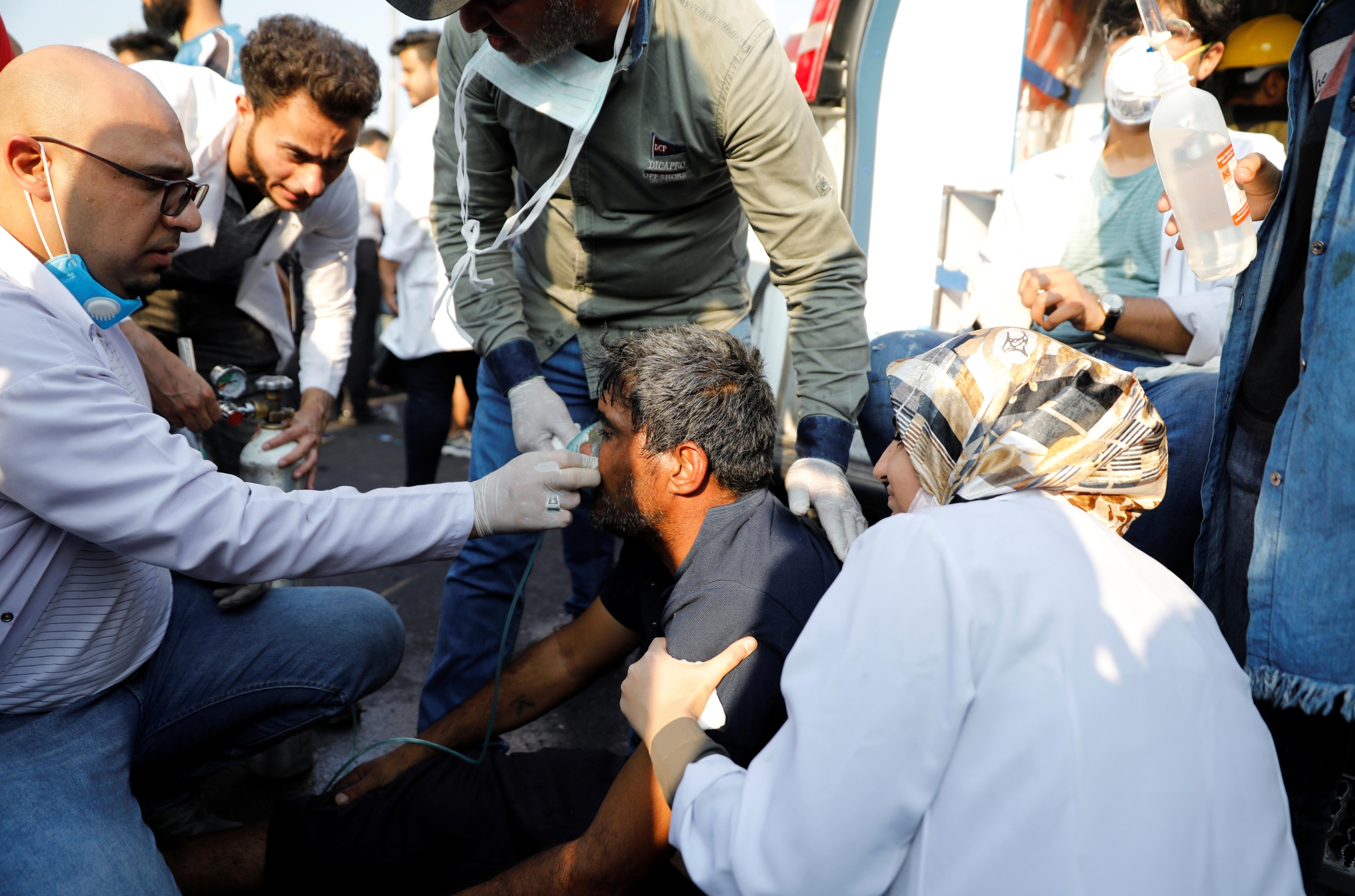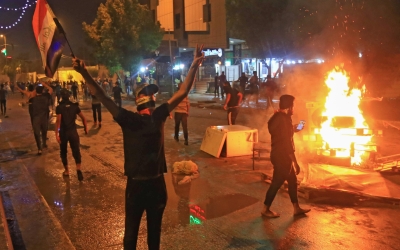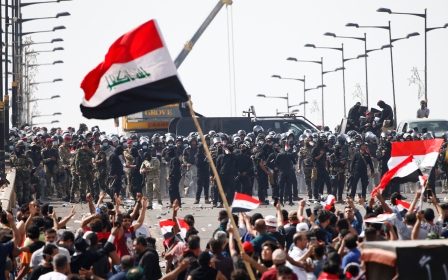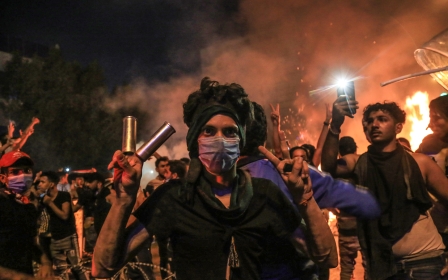Scores dead as second wave of Iraq protests advances into sixth day

As a second wave of demonstrations across Iraq reached its sixth day with no end in sight, the death toll continued to increase to unprecedented numbers.
On Wednesday, at least two deaths were reported by Reuters in the capital Baghdad, along with 175 people injured as protesters tried to enter the heavily protected Green Zone, which hosts government buildings as well as the US embassy.
A rocket was also fired towards the zone, killing one member of Iraq's security forces, according to Reuters.
At least 100 people have died this week in clashes between security forces and protesters, according to the AFP news agency, and about 5,000 people have been hurt.
Most of the deaths were among civilians who suffocated from tear gas, sustained fatal wounds from fired tear gas cannisters or were fatally shot, the news agency said.
The social unrest is being driven by discontent at economic hardships and deep-seated corruption and has disrupted two years of relative stability in Iraq, a country that has suffered from both an invasion by the US and an insurgency from the Islamic State (IS) group.
A first wave of protests saw 149 civilians die because of excessive force used by security units, according to a report by an Iraqi government committee.
The first wave was halted for two weeks in recognition of a religious festival, before resuming on 25 October.
This week, demonstrations quickly turned violent and deadly, with at least 18 people having been killed and another 122 injured on Monday in the Iraqi holy city of Karbala.
Also on Monday, security forces fired tear gas at students defying a warning from Prime Minister Adel Abdul Mahdi by joining thousands in Baghdad protesting against his government.
The violence and increasing death toll have caused widespread outrage in the country, including among Iraqi politicians.
'Iraq could turn into another Syria or Yemen'
- Muqtada al-Sadr, Iraqi Shia cleric
On Wednesday, influential Shia cleric Muqtada al-Sadr called for Mahdi's resignation, saying that if he didn't leave the government, "Iraq could turn into another Syria or Yemen".
Sadr, who backs parliament's biggest bloc and helped bring the prime minister's fragile coalition government into power, has also called for early parliamentary elections.
Middle East Eye delivers independent and unrivalled coverage and analysis of the Middle East, North Africa and beyond. To learn more about republishing this content and the associated fees, please fill out this form. More about MEE can be found here.





